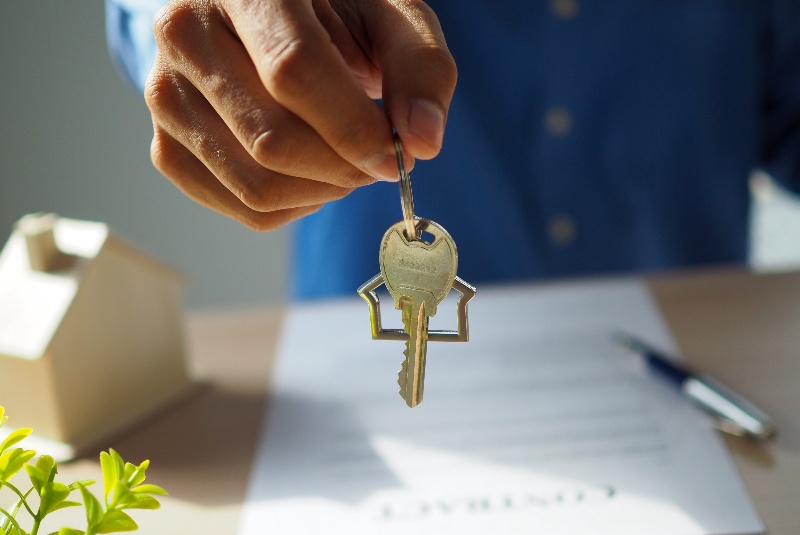Staying debt-free doesn’t happen by chance — it’s the result of consistent, smart financial habits. In a world where easy credit is always available and spending can be done in a single click, it’s easy to fall into the trap of living beyond your means. But with the right mindset, tools, and daily practices, you can take control of your money and build a debt-free, financially secure life.
This guide outlines clear, proven strategies to improve your financial habits, avoid unnecessary debt, and create a stable future that aligns with your goals and values.
1. Know Where Your Money Is Going
Before you can build better financial habits, you need a clear picture of your current behavior.
Start by Tracking Expenses:
-
Use budgeting apps or spreadsheets to categorize every dollar spent.
-
Review the last 2–3 months of bank and credit card statements.
-
Identify trends — how much is going to needs, wants, savings, and debt?
Understanding your spending habits helps you spot unnecessary expenses and shift toward more intentional money choices.
2. Create a Realistic Monthly Budget
A budget is your financial blueprint — a proactive plan for how you’ll spend and save.
Key Budgeting Steps:
-
Calculate your monthly income (after taxes).
-
List your fixed expenses (rent, utilities, insurance).
-
Include variable expenses (groceries, gas, dining).
-
Allocate funds to savings and debt repayment.
Try the 50/30/20 rule as a starting point:
-
50% for needs
-
30% for wants
-
20% for savings and debt reduction
A realistic budget empowers you to live within your means while still enjoying life.
3. Build an Emergency Fund
An emergency fund is your safety net — it helps you avoid debt when unexpected expenses arise.
How Much to Save:
-
Start with $500 to $1,000 for small emergencies.
-
Aim for 3 to 6 months' worth of expenses over time.
Keep your emergency fund in a separate savings account that’s accessible but not too easy to dip into. Treat it like insurance for your future.
4. Pay Off High-Interest Debt First
If you’re currently in debt, prioritize repayment strategically to save money on interest and build momentum.
Two Effective Methods:
-
Avalanche Method: Pay off the debt with the highest interest rate first (e.g., credit cards).
-
Snowball Method: Pay off the smallest balance first to gain quick wins and motivation.
Focus on making more than the minimum payments whenever possible. Even small extra payments can shave off months or years from your debt timeline.
5. Use Credit Wisely — or Not at All
Credit isn’t inherently bad, but misusing it can quickly spiral into long-term debt.
Smart Credit Habits:
-
Keep balances low relative to your credit limits (ideally under 30%).
-
Pay your full balance each month to avoid interest.
-
Avoid opening new accounts unless necessary.
If credit is too tempting, consider using debit cards, cash envelopes, or pre-paid cards instead.
6. Automate Good Habits
Make saving and paying bills easier by setting up automatic transfers and payments.
Benefits:
-
Reduces the chance of missed payments or late fees.
-
Ensures consistent savings without relying on willpower.
-
Builds long-term habits with less effort.
You can automate transfers to savings, retirement accounts, or debt payments — and then “forget it” while your financial foundation strengthens.
7. Live Below Your Means
This simple principle is the key to financial freedom. Spending less than you earn gives you breathing room to save, invest, and stay out of debt.
How to Do It:
-
Cut expenses where possible — cancel unused subscriptions, shop secondhand, cook at home.
-
Delay gratification — save up for large purchases rather than using credit.
ADVERTISEMENT -
Avoid lifestyle inflation — don’t let your spending rise just because your income does.
Financial peace comes not from how much you make, but from how much you keep.
8. Set Clear, Motivating Financial Goals
Having specific goals gives your money purpose and keeps you motivated.
Examples:
-
Pay off $5,000 in credit card debt within 12 months.
-
Build a $10,000 emergency fund.
-
Save $300/month toward a future vacation or down payment.
Break big goals into small milestones and celebrate your progress. When you’re working toward something meaningful, it’s easier to stick to your plan.
9. Practice Mindful Spending
Many people fall into debt due to unconscious or emotional spending. Practicing mindful spending helps you make better choices.
Ask Before You Buy:
-
Do I really need this right now?
-
Can I afford it without going into debt?
-
Will I still value it a week from now?
Try implementing a 24-hour rule for non-urgent purchases — you’ll be surprised how often the impulse fades.
10. Avoid “Buy Now, Pay Later” Traps
BNPL programs and retail financing may seem convenient, but they often lead to overspending and hidden fees.
Why to Be Cautious:
-
They encourage purchases you may not actually afford.
-
Late fees and high interest can accumulate quickly.
-
Multiple BNPL plans can be hard to track.
Stick to purchases you can pay for in full upfront. Debt-free living means spending with intention and discipline.
11. Invest in Financial Education
Improving your financial habits is easier when you understand the why behind your actions.
Ways to Learn:
-
Read personal finance books or blogs.
-
Listen to podcasts on budgeting, investing, or debt freedom.
-
Take free online courses or attend local workshops.
Financial literacy empowers you to make confident decisions and avoid common money traps.
12. Surround Yourself With Support
Your environment can either support or sabotage your goals. Surround yourself with people who value smart money habits.
Build a Supportive Network:
-
Join online communities focused on frugal living or debt freedom.
-
Talk openly with a trusted friend or partner about your goals.
-
Follow social media accounts that promote financial wellness.
A strong support system can offer encouragement, ideas, and accountability.
13. Review and Adjust Regularly
Financial habits aren’t “set it and forget it.” Life changes — and your money plan should too.
Check In Monthly:
-
Review your spending and savings progress.
-
Update your budget if income or expenses change.
-
Reflect on what’s working and what’s not.
Even five minutes a week can help you stay on track and make intentional adjustments.
14. Be Patient — Progress Takes Time
Improving financial habits is a journey, not a sprint. There will be setbacks — but the key is to keep going.
Tips for Staying Motivated:
-
Track your progress visibly (charts, spreadsheets, or habit trackers).
-
Celebrate milestones, even small ones.
-
Focus on progress, not perfection.
Financial freedom isn’t about doing everything perfectly — it’s about making better choices, consistently, over time.




